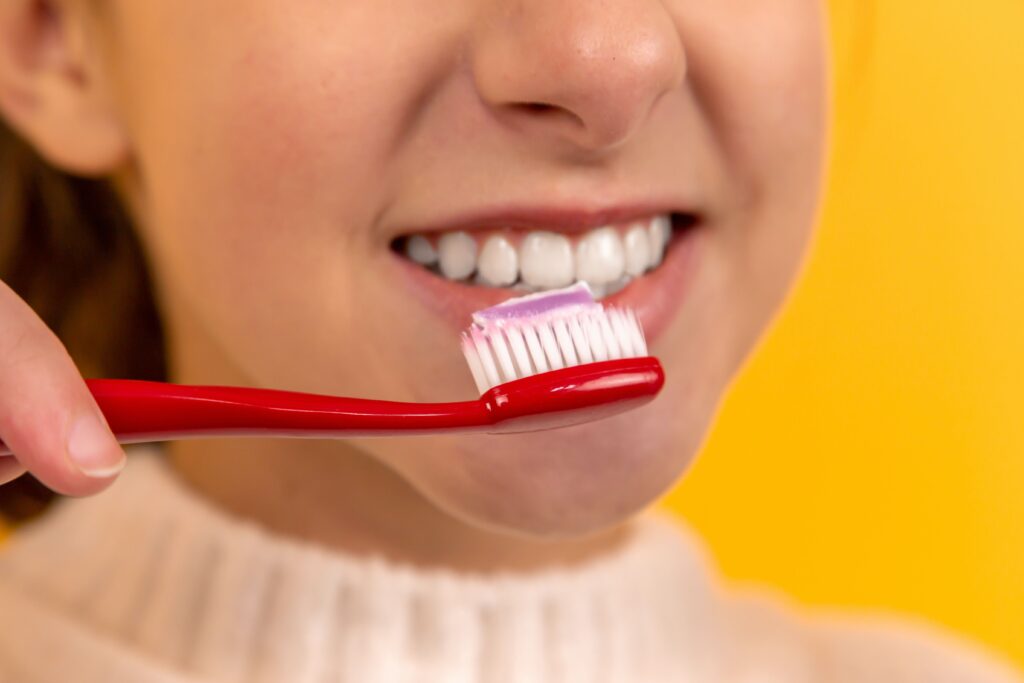
You’ve probably wondered if your daily dose of coffee is doing any damage to your pearly whites. We all know that coffee stains our favorite mugs, but what about our teeth? In this article, we’ll explore the effects of coffee on dental health and find out if it’s truly a culprit in causing those dreaded tooth stains. So grab a cup of joe and let’s uncover the truth about whether coffee is bad for your teeth.
The Effects of Coffee on Dental Health
Staining and Discoloration
One of the most well-known effects of coffee on dental health is its tendency to cause staining and discoloration of the teeth. The dark pigments found in coffee, known as tannins, can easily adhere to the enamel of the teeth, leading to unsightly yellow or brown stains. This can be particularly problematic for those who regularly consume large quantities of coffee or have a preference for darker roasts.
Enamel Erosion
In addition to staining, coffee can also contribute to the erosion of tooth enamel. The high acidity of coffee can gradually weaken the enamel, making the teeth more vulnerable to damage and decay. This erosion can lead to tooth sensitivity, as the protective outer layer of the tooth becomes thinner and exposes the sensitive nerves underneath.
Tooth Sensitivity
Another consequence of coffee consumption is increased tooth sensitivity. The erosion of enamel, coupled with the staining of teeth, can lead to heightened sensitivity to hot or cold temperatures, as well as sweet or acidic foods. This sensitivity can range from mild to severe, and may require special care and attention when consuming certain foods or beverages.
Coffee’s Role in Dental Decay
Acidity and Bacterial Growth
The acidity of coffee can create an environment conducive to bacterial growth in the mouth. Bacteria thrive in acidic conditions and can contribute to the formation of dental plaque, which can ultimately lead to tooth decay and cavities. Regular and thorough brushing and flossing can help remove this plaque and minimize the risk of dental decay.
Effects on Saliva
Coffee has been found to decrease saliva production in the mouth. Saliva plays a crucial role in maintaining oral health by neutralizing acids, washing away food particles, and providing essential minerals and nutrients to the teeth. Reduced saliva flow can result in a dry mouth, which increases the risk of tooth decay and other oral health issues.
Sugar and Sweeteners in Coffee
While coffee itself is low in sugar, many people enjoy adding sweeteners or syrups to enhance the taste. These added sugars can significantly impact dental health, as they provide fuel for bacterial growth and increase the risk of cavities. It is important to be mindful of the amount of sugar consumed in coffee and consider healthier alternatives.
Preventive Measures for Coffee Drinkers
Use a Straw
Using a straw to drink coffee can help minimize direct contact between the beverage and the teeth. By bypassing the front teeth, which are most prone to staining, you can reduce the likelihood of discoloration. However, it is important to note that using a straw does not eliminate the other effects of coffee on dental health, such as enamel erosion or sensitivity.
Rinse with Water
After consuming coffee, it is beneficial to rinse your mouth with water. This helps to wash away any lingering coffee residue and neutralizes the acidity in the mouth. Swishing water around for 30 seconds or brushing your teeth shortly after drinking coffee can help minimize the negative effects on dental health.
Maintain Good Oral Hygiene
Regular and consistent oral hygiene practices are essential for coffee drinkers. Brushing your teeth at least twice a day with a fluoride toothpaste and flossing daily can help remove coffee stains and prevent plaque buildup. It is also advisable to replace your toothbrush every three to four months or sooner if the bristles become frayed.
Choose Lighter Roasts
Opting for lighter roasts of coffee can potentially reduce the staining effects on teeth. Lighter roasts generally have fewer tannins and are less likely to leave noticeable stains. However, keep in mind that light roasts may contain higher levels of acidity, so it is advisable to balance this factor with other preventive measures.
Moderation is Key
Perhaps the most crucial preventive measure for coffee drinkers is moderation. Limiting your consumption to one or two cups of coffee per day can help minimize the negative effects on dental health. Additionally, drinking coffee with meals, rather than sipping it throughout the day, can reduce prolonged exposure to the acidity and pigments found in coffee.
Coffee Alternatives for Dental Health
Herbal Teas
For those looking to reduce their coffee consumption, herbal teas can be a great alternative. Herbal teas come in a wide variety of flavors and can provide a soothing and enjoyable experience, without the staining and acidity associated with coffee. Be sure to choose herbal teas that are caffeine-free to avoid any potential negative impacts on sleep or overall health.
Decaffeinated Coffee
Decaffeinated coffee retains the taste and aroma of regular coffee but with a significantly reduced caffeine content. While it may still contain some acidity, opting for decaf can be a suitable alternative for coffee lovers who are concerned about the negative effects of caffeine on their dental health. However, it is important to note that decaf coffee can still contribute to staining and enamel erosion.
Milk or Creamer Mixtures
Adding milk or creamer to your coffee can help reduce its staining potential. The proteins found in dairy products create a protective barrier on the teeth, minimizing the contact between the coffee and the enamel. Furthermore, milk can help neutralize the acidity of coffee, reducing its erosive effects. However, be cautious with flavored creamers or those high in sugar, as they can still increase the risk of dental decay.
Water Infusions
If you are looking for a refreshing and hydrating alternative to coffee, water infusions can be a fantastic option. By adding fruits, herbs, or vegetables to your water, you can create flavorful and nutritious beverages that are not only free from staining pigments but also provide essential vitamins and antioxidants for overall dental and general health.

This image is property of images.unsplash.com.
Professional Dental Treatments to Counteract Coffee Effects
Teeth Whitening
For those seeking to remove stubborn coffee stains from their teeth, professional teeth whitening treatments can be highly effective. Dentists can use various techniques, such as bleaching or laser whitening, to lighten the color of your teeth and restore their natural brightness. While these treatments can be quite costly, the results are often worth the investment for those who desire a whiter smile.
Dental Bonding
Dental bonding is a procedure where a tooth-colored resin is applied to the tooth and shaped to mask imperfections, such as staining. This non-invasive treatment can help improve the appearance of teeth affected by coffee stains and restore a more aesthetically pleasing smile. Dental bonding is a more affordable alternative to veneers or crowns, making it an attractive option for many coffee drinkers.
Veneers
Veneers are thin porcelain shells that are permanently bonded to the front surface of the teeth to enhance their appearance. They can be customized to match the desired color, shape, and size, effectively covering any coffee stains or discoloration. While veneers can be a more expensive option, they provide a long-lasting solution and can dramatically enhance the overall appearance of your smile.
Fluoride Treatments
To combat the effects of coffee on tooth enamel and strengthen the teeth, dentists may recommend fluoride treatments. This involves the application of a fluoride gel or varnish to the teeth, which helps remineralize and protect the enamel. Regular fluoride treatments can be particularly beneficial for those who consume coffee on a daily basis, as they provide an extra layer of defense against enamel erosion and tooth decay.
Health Benefits of Coffee for Teeth
Antibacterial Properties
Despite the potential negative effects on dental health, coffee does possess certain beneficial properties. Research has suggested that coffee may have antibacterial properties, which can help fight against certain strains of oral bacteria. By inhibiting the growth of harmful bacteria, coffee might contribute to a healthier oral environment and reduce the risk of dental infections.
Anti-inflammatory Effects
Coffee contains compounds with anti-inflammatory properties, such as chlorogenic acid and caffeine. These compounds have been shown to reduce inflammation and decrease the risk of gum disease. By minimizing inflammation, coffee may help protect the gums and support overall oral health.
Stimulating Saliva Production
While coffee has been noted to decrease overall saliva production, it can still stimulate saliva flow initially. This initial increase in saliva can help wash away food particles and bacteria, providing some level of protection to the teeth. However, it is important to note that the overall decrease in saliva production can still outweigh this initial stimulatory effect.
Possible Protection Against Oral Cancer
Studies have suggested a potential link between coffee consumption and a decreased risk of developing oral cancer. The antioxidants and other bioactive compounds found in coffee may help prevent the growth of cancer cells and offer some level of protection against oral cancer. However, further research is needed to fully understand this association.

This image is property of images.unsplash.com.
Coffee and Teeth: Expert Opinions
Dentists’ Perspective
From a dental perspective, most dentists would agree that excessive coffee consumption can have negative consequences on dental health, such as staining, enamel erosion, and tooth sensitivity. Dentists recommend practicing preventive measures and maintaining good oral hygiene to minimize the effects of coffee on teeth. However, they also recognize the potential health benefits of coffee and encourage moderation in its consumption.
Findings from Research Studies
Numerous research studies have explored the relationship between coffee and dental health. While some studies confirm the negative effects of coffee on teeth, others have highlighted potential benefits, such as antibacterial properties and protection against oral cancer. It is important to consider the overall body of evidence and consult with dental professionals to make informed decisions regarding coffee consumption and dental health.
Alternative Views and Debates
As with any topic, there are varying opinions and debates surrounding the effects of coffee on dental health. While some argue that the staining and acidity of coffee are detrimental to dental health, others believe that the benefits of coffee, such as its antibacterial and anti-inflammatory properties, outweigh the negative effects. It is crucial to understand individual factors, such as oral hygiene practices, genetics, and overall diet, when determining the impact of coffee on dental health.
Additional Factors Affecting Dental Health
Overall Diet and Nutrition
It is important to note that dental health is influenced by various factors, including overall diet and nutrition. A balanced and nutritious diet, rich in vitamins and minerals, is essential for maintaining strong and healthy teeth. Consuming foods and beverages high in sugar, acidity, or staining pigments, such as coffee, can significantly impact dental health. Therefore, it is advisable to consider the overall diet in conjunction with coffee consumption to promote optimal oral health.
Oral Hygiene Practices
Practicing good oral hygiene habits is paramount for maintaining optimal dental health, regardless of coffee consumption. Regular brushing, flossing, and rinsing with an antibacterial mouthwash can help remove plaque, food particles, and bacteria from the teeth and gums. By establishing and maintaining a solid oral hygiene routine, you can effectively manage the effects of coffee or other external factors on dental health.
Genetic Predisposition
Genetics can play a role in determining an individual’s susceptibility to dental issues. Some individuals may naturally have stronger tooth enamel or better resistance to staining, while others may be more prone to enamel erosion or tooth sensitivity. Understanding your genetic predisposition and discussing it with your dentist can help tailor preventive measures and treatment plans specific to your needs.
Age and Tooth Structure
Age and tooth structure also influence the impact of coffee on dental health. As we age, the enamel naturally wears down, making the teeth more susceptible to staining and erosion. Additionally, certain individuals may have inherited thin or porous enamel, which can contribute to increased sensitivity and vulnerability to external factors like coffee. Regular dental check-ups can help identify any age-related or structural issues and provide appropriate guidance and treatment.

Dental Tips for Coffee Lovers
Brushing Techniques to Minimize Stains
To minimize staining from coffee, it is recommended to wait at least 30 minutes after consuming coffee before brushing your teeth. This allows the saliva in your mouth to neutralize some of the acidity and rinse away any residue, reducing the risk of spreading the pigments around the teeth. Gentle brushing with a soft-bristled toothbrush and fluoride toothpaste can help remove any remaining stains without damaging the enamel.
Choosing the Right Toothpaste
Using a toothpaste specifically formulated for stain removal or whitening can be beneficial for coffee lovers. These toothpastes often contain ingredients that help break down and remove stains caused by coffee and other pigmented beverages. However, it is important to use these toothpastes in moderation and consult with your dentist if you have sensitive teeth or existing dental issues.
Regular Dental Check-ups
Regular dental check-ups are crucial for identifying and addressing any dental issues caused by coffee consumption. Dentists can thoroughly clean and polish your teeth to remove stubborn stains and plaque, as well as provide personalized advice and guidance on maintaining optimal dental health. Additionally, they can detect any early signs of dental decay or damage and intervene before they progress into more serious problems.
Using Mouthwash Properly
Incorporating an antibacterial mouthwash into your oral hygiene routine can help combat the negative effects of coffee on dental health. Mouthwash can reach areas that brushing and flossing may miss, providing additional protection against bacteria and plaque. It is important to follow the instructions on your mouthwash and avoid rinsing directly after brushing to allow the fluoride from the toothpaste to remain on the teeth for maximum benefit.
Conclusion
While coffee can have some negative effects on dental health, such as staining, enamel erosion, and tooth sensitivity, it is important to consider the overall impact in relation to individual factors such as genetics, diet, and oral hygiene practices. By practicing preventive measures, moderating coffee consumption, and maintaining regular dental check-ups, coffee lovers can enjoy their favorite beverage while minimizing its potential harms. Additionally, exploring alternative coffee options and considering the potential health benefits of coffee can provide a more holistic perspective on its impact on dental health. Ultimately, striking a balance between enjoying your cup of coffee and caring for your dental health is the key to maintaining a bright smile.
